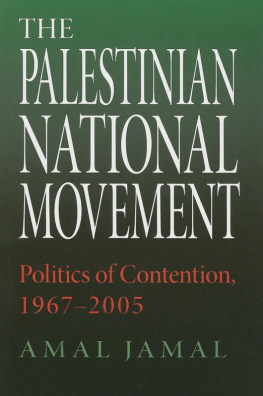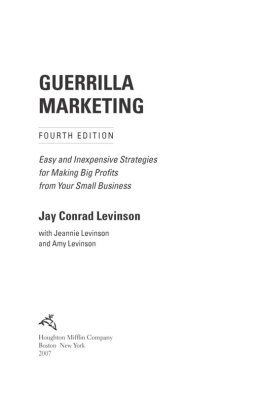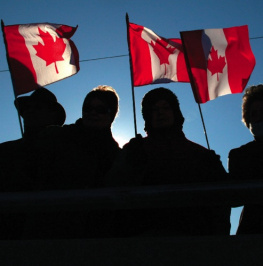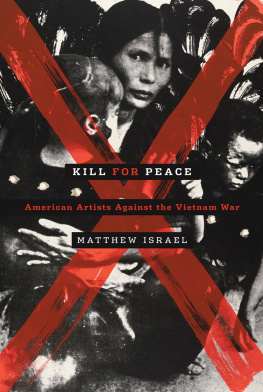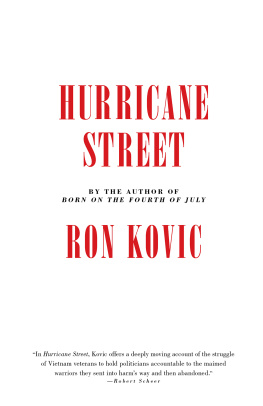WAR CULTURE
Edited by Daniel Leonard Bernardi
Books in this new series address the myriad ways in which warfare informs diverse cultural practices, as well as the way cultural practicesfrom cinema to social mediainform the practice of warfare. They illuminate the insights and limitations of critical theories that describe, explain, and politicize the phenomena of war culture. Traversing both national and intellectual borders, authors from a wide range of fields and disciplines collectively examine the articulation of war, its everyday practices, and its impact on individuals and societies throughout modern history.
WAR
IS NOT A GAME
The New Antiwar Soldiers and the Movement They Built
Nan Levinson
RUTGERS UNIVERSITY PRESS
NEW BRUNSWICK, NEW JERSEY, AND LONDON
Library of Congress Cataloging-in-Publication Data
Levinson, Nan, 1949
War is not a game : the new antiwar soldiers and the movement they built / Nan Levinson.
pages cm
Includes bibliographical references and index.
ISBN 9780813571133 (hardcover : alk. paper)
ISBN 9780813571157 (e-book)
1. Iraq Veterans Against the War. 2. Iraq War, 20032011VeteransUnited StatesPolitical activity. 3. Iraq War, 20032011Protest movements. 4. SoldiersPolitical activityUnited StatesHistory21st century. 5. VeteransPolitical activityUnited StatesHistory21st century. 6. Peace movementsUnited StatesHistory21st century. I. Title.
DS79.767.P76L48 2014
956.7044'31dc23
2014004945
A British Cataloging-in-Publication record for this book is available from the British Library.
Copyright 2014 by Nan Levinson
All rights reserved
No part of this book may be reproduced or utilized in any form or by any means, electronic or mechanical, or by any information storage and retrieval system, without written permission from the publisher. Please contact Rutgers University Press, 106 Somerset Street, New Brunswick, NJ 08901. The only exception to this prohibition is fair use as defined by U.S. copyright law.
Visit our website: http://rutgerspress.rutgers.edu
Manufactured in the United States of America
for Phyllis Levinson and for Alan Lebowitz
CONTENTS
My deep and abiding gratitude goes to the people in this book, who gave me their stories, time, wisdom, and patience. I couldnt have written it without themand what a fine way to discover that a clich is true. This is their book, and I hope Ive done right by them. A special nod goes to Aaron Hughes, Anne and Andy Sapp, Nick Jehlen, Nancy Lessin, the late, missed Charley Richardson, Winston Warfield, Amadee Braxton, Liam Madden, and Kelly Dougherty, who time and again provided explanations, answers, and insight.
Im sure I will miss a number of people who deserve a thank you, and an even greater number whose ears Ive talked off in my immersion in the subject, so picture me slapping my forehead and saying, damn! as I rue the omission. Those I havent forgotten include my readers, Anthony Hixon, Julie Levinson, and Lanie Zera; my editors, Leslie Mitchner and Daniel Bernardi for their enthusiasm, smarts, and kindness; my indexer and pal, Martha Berg; my copy editor with a sense of language and of humor, Beth Gianfagna, and all the good people at Rutgers University Press who made this book a book; my encouragers, Mary Susan DeLaura, Neil Miller, Tom Engelhardt, Joe Hurka, Michael Bennett (who gave me my first, indelible introduction to basic training), and Richard and Georgia-Jean Hollander (who gave me a place to stay, though they didnt always agree with me); my good neighbor Mark Giles (who shoveled snow and took care of us so I could sit at my desk and finish the book); and my mother, Phyllis Levinsonhow lucky I am to have had her to guide, sustain, and root for me all these years.
Finally, a mere thanks is inadequate for Alan Lebowitz, my supporter, mentor, exemplar, advocate, companion, laugh-sharer, dinner-maker, my husband, my love.
Were going over now. You ready? a young veteran with a soul patch and a quicksilver smile asks a fellow vet whos grabbing a smoke outside the Holiday Inn in downtown St. Louis in August 2007. They exchange a short nod. The heat wave, close to one hundred degrees all week, has finally broken, so its no longer punishing to venture beyond air conditioning. The two veterans, one lanky, the other solid as a door jamb, climb into a car, where a few others wait, and they all head down the street to the Missouri Black Expo job fair, now in full swing.
The exhibition hall is big, echoing, overlit, packed with job recruiters and seekers, but the clump of young men and women in black T-shirts with Iraq Veterans Against the War stenciled on the front is hard to miss as they make their way to the booth with Go Army! splayed across its canopy. A Humvee, decked out with fancy twenty-inch rims, is parked next to a table laden with brochures and sign-up sheets. There, military recruiters and civilian contractors chat with teens and encourage them to take turns playing Americas Army, a simulation game proclaiming itself to be The Only Game Based on the Experience of Real U.S. Army Soldiers.
For the antiwar veterans, the buzz has begun the day before, when a handful of IVAW members are hanging around the hotel lobby on a break from the panel sessions at their third annual meeting. Theres a job fair going on across the street, someone says. The armys got a recruiting booth, I saw them unloading a truck, we gotta do something. They bat ideas around until someoneprobably Steve Mortillo or Jabbar Magrudersuggests a sound-off, and it clicks. The plan spreads with a quiet signaling among the veterans. Now, at the expo, theyre ready for action.
Fall in, comes the command, and the veterans do. Ninety people with real U.S. Army and Marine experience stand at attention in mass company formation four rows deep, their arms rigid at their sides. Theres Camilo Mejia, the first soldier to be court-martialed for refusing to return to Iraq, and Kelly Dougherty, one of IVAWs founders and now its executive director. Liam Madden, who helped launch an Appeal for Redress to Congress and in three months got more than one thousand active-duty personnel to sign it, is there. Also Garett Reppenhagen, who co-hosted the first antiwar blog by an active-duty soldier, and Aaron Hughes, an artist-activist, whos about to spearhead IVAWs most ambitious project, the Winter Soldier investigation, which will offer grunt-level testimony about the wars next March.
Magruder takes his stance at the head of the formation and shouts, Iraq veterans against the war, what have you learned?
War is not a game! the veterans yell in unison.
Again comes the call and the response, War is not a game.
Then a third exchange. And War is not a game! even louder now, caroms around the trusses of the ceiling.
Fernando Suarez, whose stepson, Jesus, had the dubious honor of being the first Mexican American to die in Iraq, stands in front, snapping photos and pumping his fist in the air, while the veterans applaud and cheer and high-five one another. As they disperse, a few police officers arrive. Its unclear who called them, but it doesnt matter. The veterans did their action, and they are stoked.
IVAW likes to talk about a consent theory of power, in which the war in Iraq is depicted as an upside-down triangle balanced precariously on its tip and shored up by pillars, including the military, the government, the education system, and public opinion. The goal is to topple the triangle by eroding the most vulnerable pillar, and that, the vets have decided, is support for the war among those who are fighting it. Today wasnt about theory, though. They saw an opportunity, they were nimble enough to seize it, they did something new, something big, and they didnt need anyone else to help them do it. This is a new era of what action is and what protest is, announces Steve Mortillo, who served as an army cavalry scout near Samarra. Its evening now and he is introducing a video of the protest to the older veterans attending the Veterans For Peace annual convention. With a small amount of people you can be so powerful to stop something like the U.S. recruiting machine in its tracks.




